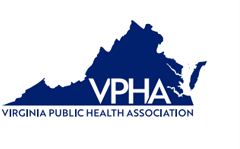Abstract
While there are multiple ways to engage communities in health research, one approach is through partnership-based research in which community representatives are involved as intentional partners in the research process, from conceptualization and co-creation to implementation, analysis, interpretation, and dissemination. However, there remain numerous challenges to supporting and sustaining such partnerships.
Since its launch in 2019, the integrated Translational Health Research Institute of Virginia (iTHRIV) has sought to foster community engaged health research among its four research/clinical institutions through a community partnership-based grant program. Over five funding cycles, iTHRIV has awarded 14 one-year research grants addressing topics such as opioid use disorder, cancer, hepatitis C and autism. Each funding cycle has provided valuable experience and feedback toward iterative program refinements.
Key lessons have included: 1) the Request For Proposals (RFP) must be very clear and community-vetted; 2) transparency regarding administrative burden required for compliance is critical to inform cost-benefit decisions; 3) giving different modes of communication, adequate and creative marketing of the RFP is necessary; 4) establishing a centralized program officer for all grantees facilitated post-award procedural navigation; 5) one year is insufficient to carry out most studies involving human subjects. Additionally, while the program anecdotally promoted collaborative partnerships, the true impact may be difficult to evaluate.
Recommended Citation
Wenzel, Sophie G.; Nguyen, Amanda J.; Miller, Kristin; Guarinello, Leigh; McKell, Allison; and Hosig, Kathryn
(2023)
"Promoting Community Health Research Partnerships Through a Small Grants Program: Processes and Lessons Learned,"
Virginia Journal of Public Health: Vol. 8:
Iss.
1, Article 7.
Available at:
https://commons.lib.jmu.edu/vjph/vol8/iss1/7

